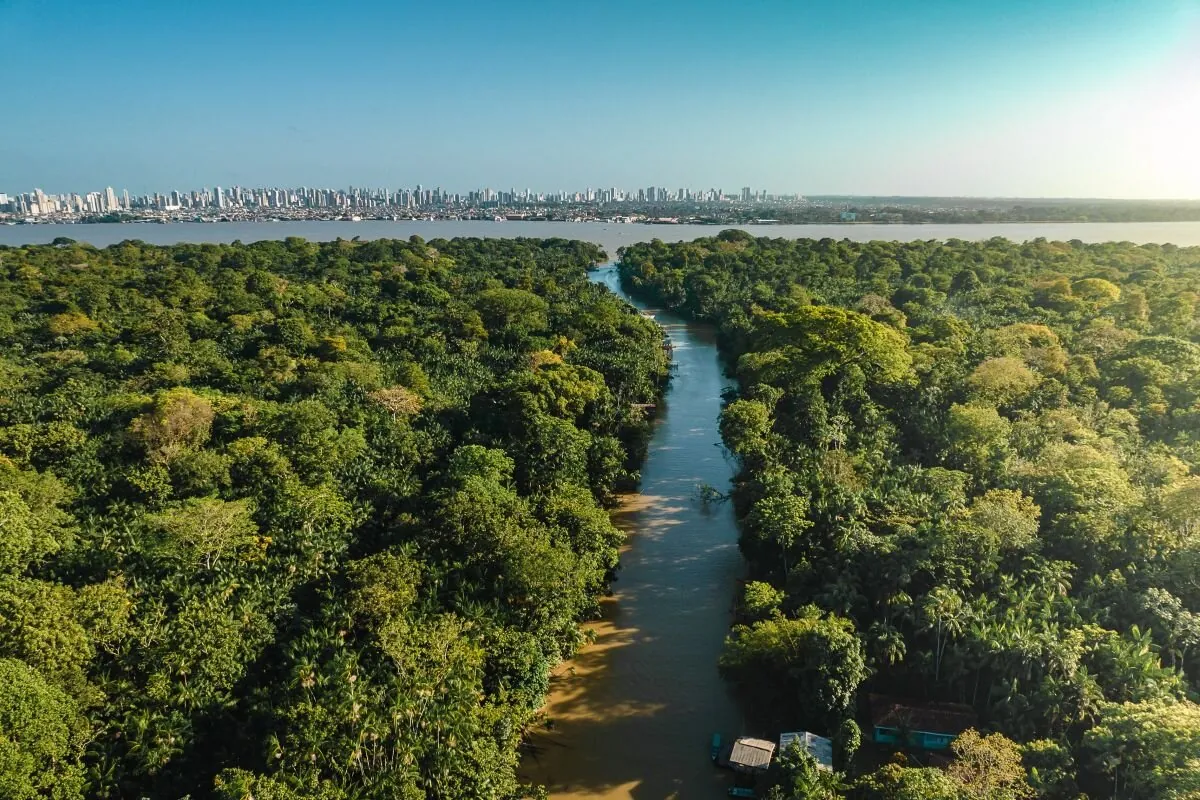- The Baku to Belém Roadmap, released today, sets out a pathway to achieve the new climate finance goal agreed at COP29 to channel $1.3 trillion per year into developing countries by 2035. It represents a clear vision of both what needs to be funded and how to do so, presenting bold steps that can be taken by Parties, multilateral institutions, and the private sector in the short term to get on the right path.
- Drafted by the Azerbaijan and Brazil COP Presidencies and with inputs from multiple rounds of national submissions and the Brazil-convened Circle of Finance Ministers’ report published in October, the final Roadmap marks the culmination of a year-long effort to deliver the task set out in the New Collective Quantified Goal (NCQG) decision agreed at COP29 last year. This covers many of the same issues included in the Circle of Finance Ministers’ report (as well as E3G’s earlier briefing on the same topic), but this time translates these into a set of actions that need to be taken by governments and financial institutions to move from rhetoric to action.
- With less than a week to go until COP30 begins, the immediate question now facing countries is how to respond to and integrate the Roadmap into the decisions taken at the UN climate summit. The meeting in Belem should be a springboard for countries and institutions to accelerate implementation of the financial reforms needed for climate action, which will be the true test of the Roadmap’s value.
Story
The Baku to Belém Roadmap arrives at a pivotal moment for climate finance. Last year the COP agreed an NCQG goal: finance must be scaled up to $1.3 trillion per year by 2035 from all public and private sources to meet the needs of developing countries. The Roadmap says that doing so will require action on five key fronts: more grants and low-cost capital; action to address fiscal space and debt sustainability; affordable private finance; enhanced capacity building and coordination; and systemic reform to channel investments.
Public finance will remain vital, particularly for funding adaptation and for climate action in the most vulnerable countries. COP30 is happening at a time of reduced fiscal space and foreign aid cuts, which risk reducing public investment at the most critical time for global climate action. In Belém, Parties will need to provide reassurance that international support for developing countries will continue to increase, both by coming forward with renewed climate finance commitments, and by ensuring that there is sufficient space on the agenda to discuss those flows.
But to reach the $1.3 trillion goal, and the even broader global finance goal embedded within the Paris Agreement under Article 2.1c, additional sources of finance will be needed too and a broad set of changes are required to institutions, rules, policies, and regulatory frameworks. While not shying away from the critical need to increase international support and rightly holding donors to account, the Roadmap sets out the breadth and depth of actions required, showing how the whole financial system must adjust to meet the climate challenge.
COP30 is an opportunity to establish the architecture for a new generation of climate finance under the Paris Agreement, one that covers and builds accountability for the full range of action needed: dedicated public support for scaled up investments in developing countries, and the alignment of global financial flows with climate objectives.
The Baku to Belém Roadmap sets out the broader landscape for change and also challenges countries to act boldly in the near term. It can potentially act as a point of reference and guidance for countries for years to come.
Quotes
Rob Moore, Associate Director, Public Banks & Development, said:
“The Roadmap lays down the gauntlet and sets out clearly what is needed to create a secure and sustainable planet. For it to have the impact it is capable of, we now need to see governments in wealthy countries and international financial institutions respond and be accountable for delivery. We need to leave COP30 with a plan for turning these words into reality.”
Salvatore Serravalle, Programme Lead, Finance & Resilience, said:
“The Baku to Belem Roadmap marks a decisive turning point for the credibility of global climate action. Investing in climate action means investing in resilience and shared prosperity, two indispensable pillars for the stability and growth of the global economy. Countries must mobilise collectively to achieve the goal of $1.3 trillion per year by 2035: this is an essential condition for restoring trust between North and South and enabling a just and ambitious transition.”
La feuille de route de Belém marque un tournant décisif pour la crédibilité de l’action climatique mondiale. Investir dans l’action climatique, c’est investir dans la résilience et la prospérité partagée, deux piliers indispensables pour la stabilité et la croissance de l’économie mondiale. Les pays doivent se mobiliser collectivement afin d’atteindre l’objectif de 1 300 milliards de dollars par an d’ici 2035: c’est une condition essentielle pour restaurer la confiance entre Nord et Sud et permettre une transition juste et ambitieuse.
Kate Levick, Associate Director, Finance & Resilience, said:
“The Roadmap process has at last put systemic reform of financial architecture at the heart of COP discussions. There is now no excuse for countries not to take matching actions by fully integrating their national climate and finance policies, and by ensuring that the climate crisis is fully addressed when finance and economy decisions are made internationally.”
Eunjung Lee, Senior Policy Advisor, Clean Economy, said:
“The Roadmap calls out systemic barriers to financing climate action in developing countries. In particular, it exposes investor-state dispute settlement (ISDS) mechanisms that punish governments for protecting the planet and drain public funds — finally putting the issue on the climate finance agenda.”
Available for comment
Kate Levick, Associate Director Finance & Resilience, kate.levick@e3g.org, +44 (0)7983 484573
Salvatore Serravalle, Programme Lead, Global Macro & Finance Resilience, salvatore.serravalle@e3g.org, +1 202-941-8943
Notes to editors
E3G is an independent think tank working to deliver a safe climate for all. We drive systemic action on climate by identifying barriers and constructing coalitions to advance the solutions needed. We create spaces for honest dialogue, and help guide governments, businesses and the public on how to deliver change at the page the planet demands. About E3G
For further enquiries email press@e3g.org or phone +44 (0)7783 787 863
Register for our journalist WhatsApp briefing service to receive updates and analysis on COP30: E3G WhatsApp registration for journalists


